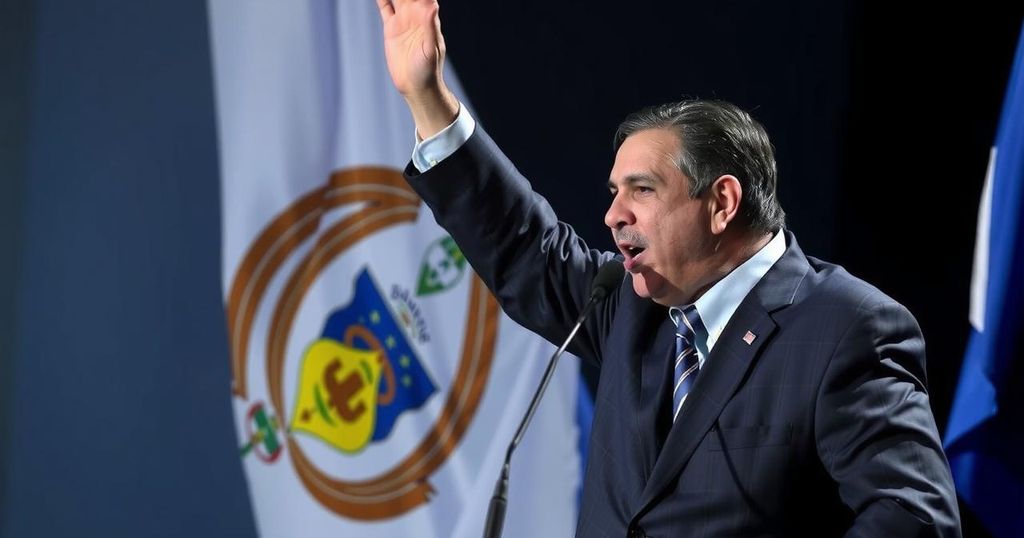Uruguay’s Conservative Government Concedes to Left-Wing Candidate Yamandu Orsi

Uruguay’s governing conservative coalition conceded the presidential run-off to left-wing candidate Yamandu Orsi, marking the end of their brief leadership. Mr. Orsi’s victory, announced amid a voter turnout of 89.4%, symbolizes a shift in governance as he plans to implement moderate policies focusing on social issues while maintaining elements of previous administrations. His leadership may address public discontent in a changing economic landscape.
In a closely contested presidential run-off, Uruguay’s ruling conservative coalition conceded defeat to left-wing candidate Yamandu Orsi. Alvaro Delgado, the candidate for the centre-right government, expressed his congratulations for Mr. Orsi’s victory with sentiments of sadness, marking the end of a government that began in 2020 under Luis Lacalle Pou. With over 57% of votes counted, Mr. Orsi of the centre-left Broad Front is poised to become Uruguay’s new president.
The Broad Front, which enjoyed a successful 15-year rule prior to 2020, is recognized for major social reforms including the legalization of abortion and same-sex marriage. Current president Lacalle Pou congratulated Mr. Orsi on social media and pledged to facilitate a smooth transition of power. Polls indicated a voter turnout of approximately 89.4%, reflecting consistent engagement in Uruguayan electoral participation.
Early estimates from independent polling suggest that Mr. Orsi, a former history teacher and two-time mayor, secured about 49% of the vote against Mr. Delgado, who garnered around 46%. The result aligns Uruguay with a broader trend of voters expressing dissatisfaction with incumbent governments amid economic challenges in a global context. However, Mr. Orsi has emphasized a moderate approach, aiming to maintain essential policies while addressing issues like childhood poverty and organized crime, indicating continuity rather than radical change in governance.
Mr. Orsi’s platform seeks to attract investment through tax incentives and proposes social security reforms, including a reduced retirement age, although it lacks extensive modifications sought by labor unions. Supporters, including healthcare worker Yeny Varone, expressed optimism for improved conditions for future generations under Mr. Orsi’s leadership.
Uruguay has a parliamentary history marked by periods of governance by the leftist Broad Front and the centre-right National Party. The recent election results signal a shift back to the left after a short tenure by the conservative coalition elected in 2020, which had previously ended 15 years of Broad Front leadership. The Broad Front had gained recognition internationally for progressive initiatives in social policy, promoting equality and individual rights. As the economic landscape has changed globally post-pandemic, this election reflects broader voter dissatisfaction that is evident in various nations.
The election of Yamandu Orsi signifies a notable political shift in Uruguay, as the left returns to power after a brief conservative administration. With a moderate agenda, Mr. Orsi aims to uphold many of the policies due to their proven success while simultaneously prioritizing social issues crucial to the electorate. His victory is emblematic of a changing political climate in which voters are actively seeking responsive governance amid economic pressures, reflecting a broader global sentiment of disenchantment with incumbent leaders.
Original Source: www.shropshirestar.com







